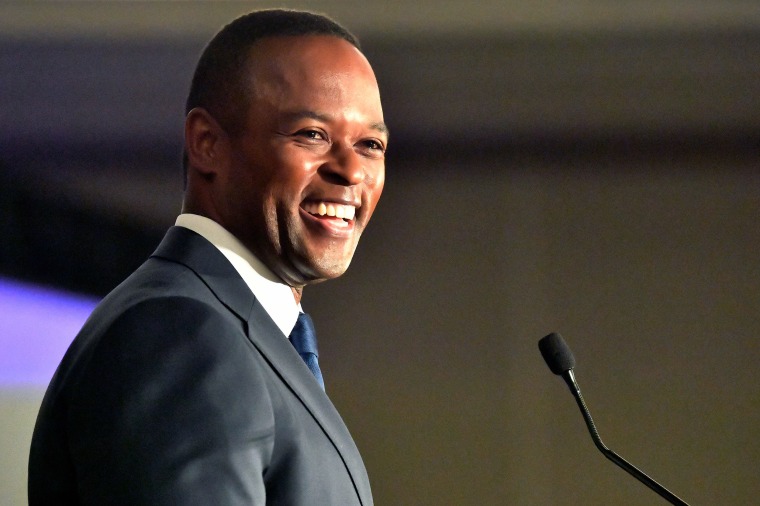Two primary results on Tuesday illustrate an important lesson in politics: Having the most money can help, but it doesn't guarantee anything in a campaign.
In Kentucky, Republican state Attorney General Daniel Cameron won the gubernatorial primary, while former Philadelphia City Councilmember Cherelle Parker won the Democratic mayoral primary. Neither candidate was the top spender in their respective race.
Cameron won Tuesday's primary by a significant margin —preliminary election results from the Kentucky Secretary of State's office has him finishing with about twice the votes of the candidate in second place, Agriculture Commissioner Ryan Quarles.
But Kelly Craft, the third-place finisher who served as former President Donald Trump's ambassador to the United Nations, was far-and-away the top ad spender in the race. Boosted by more than $9 million from her personal wealth, Craft's campaign spent $6.6 million on ads, about six times more than Cameron's campaign, according to data from the ad-tracking firm AdImpact.
Quarles' campaign spent about $940,000 on ads.
Craft wasn't the only big spender who fell short Tuesday.
Former city councilman and real estate developer Allan Domb, who largely self-funded his campaign, appears poised to come in a distant fourth place in the Democratic primary for mayor in Philadelphia. His campaign spent nearly $8.7 million on ads, far outpacing the other candidates, per AdImpact.
Grocery store magnate Jeff Brown, whose campaign spent $3.1 million on ads for his primary race (more than all but Domb), is poised to finish fifth.
It's hardly the first time that a candidate with the most money has fallen short in a high-profile race. That was the case in Chicago's mayoral race earlier this year, and it's happened in plenty of other races as well — most notably, the 2016 presidential election.
But the best-funded candidate does often win, with high-profile examples in recent history including the 2020 presidential election and this year's Wisconsin Supreme Court special election.
For all the emphasis on a candidate's resources, elections like Tuesday's underscore the fact that money is not always determinative, even if it remains an important piece of the campaign puzzle.


